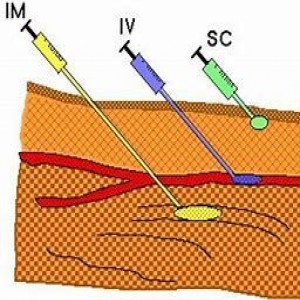 Welcome
Welcome
“May all be happy, may all be healed, may all be at peace and may no one ever suffer."
- A
- B
- C
- D
- E
- F
- G
- H
- I
- J
- K
- L
- M
- N
- O
- P
- Q
- R
- S
- T
- U
- V
- W
- X
- Y
- Z
Thiason 100mg / ml
Jayson Pharmaceuticals Ltd.
Thiamine Hydrochloride - Brands
Thiamine, in the form of thiamine pyrophosphate, is the coenzyme for decarboxylation of α-ketoglutaric acid. Thiamine deficiency affects the peripheral nervous system, the gastrointestinal tract, and the cardiovascular system. This vitamin is necessary for the optimal growth of infants and children. Thiamine is not stored in the body, and is regularly lost from tissues during short periods of deficiency. In order to maintain normal health, an adequate amount of thiamine is required every day. Deficiency of thiamine leads to fatigue, anorexia, gastrointestinal disturbance, tachycardia, irritability and neurological symptoms. Beriberi, a disease due to vitamin B1 deficiency, is common in alcoholics, in pregnant women receiving an inadequate diet, and in people with malabsorption syndrome, prolonged diarrhoea and hepatic disease.
Thiamine is well absorbed from the gastrointestinal tract and widely distributed throughout the body. Thiamine is rapidly absorbed from the upper small intestine. Thiamine is not stored in the body to any appreciable extent. Excess ingested thiamine appears in urine as intact thiamine or as pyrimidine, which arises from degradation of the thiamine molecule. The plasma half life of thiamine is 24 hours.
To be happy, beautiful, healthy, wealthy, hale and long-lived stay with DM3S.

